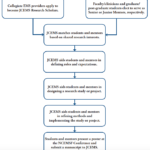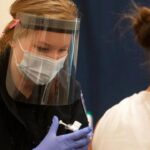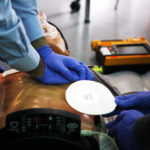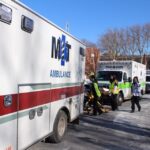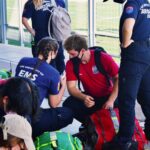Research Mentorship Program
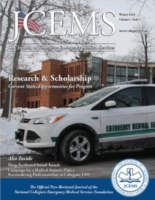 The JCEMS Research Mentorship Program aims to facilitate productive, scholarly relationships between collegiate EMS providers and established investigators, clinicians, and scholars. Students who participate in the program will develop competency in conducting research, setting the stage for their continued development as research leaders in EMS and other fields. Projects fostered by the program will result in scholarly publications and presentations that impact clinical, operational, and administrative developments within the collegiate EMS community. For additional details on the Research Mentorship Program, please read our editorial below.
The JCEMS Research Mentorship Program aims to facilitate productive, scholarly relationships between collegiate EMS providers and established investigators, clinicians, and scholars. Students who participate in the program will develop competency in conducting research, setting the stage for their continued development as research leaders in EMS and other fields. Projects fostered by the program will result in scholarly publications and presentations that impact clinical, operational, and administrative developments within the collegiate EMS community. For additional details on the Research Mentorship Program, please read our editorial below.
Objectives & Opportunities
The JCEMS Research Mentorship Program
Collegiate EMS Providers
Applications to be a JCEMS Research Scholar open each year at NCEMSF Conference and close the last Friday of March. Applicants can expect scholarship determinations by the last Friday of April. All collegiate EMS providers may apply.
Residents/Medical Students/Graduate Students
Junior Research Mentors are tactical enablers of meaningful research, often with recent and relevant experience to our Research Scholars while developing the pedigree and experience of our Senior Research Mentors. Junior Research Mentors can expect to learn as they teach, and to build their CV with co-author credit for published work. They are expected to have strong preparation in research and teaching or mentorship in order to mentor Research Scholars under the guidance of Senior Research Mentors. To express interest in serving as a Junior Research Mentor, please submit a brief letter of intent and CV to JCEMS@CollegeEMS.com.
Faculty/Clinicians
Senior Research Mentors are the strategic leaders of research mentorship teams, helping to scope the research, remove barriers to advancing the work, and conduct initial reviews of drafted papers. They are expected to have demonstrated expertise in relevant fields of research, such as EMS, public health, data science, or others, and to have extensive experience in teaching or mentorship. Senior Research Mentors can expect co-author credit for published work. To express interest in serving as a Senior Research Mentor, please submit a brief letter of intent and CV to JCEMS@CollegeEMS.com.

